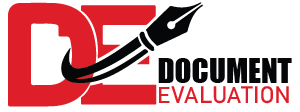If you’re applying for the EB2 NIW (National Interest Waiver), you’re probably aware of the importance of Expert Opinion Letters. But knowing that you need one and knowing precisely what to include in these letters are two completely different things. A well-written Expert Opinion Letter can get you quick approval, avoiding EB2 NIW RFE (Request for Evidence) from USCIS. So, what exactly should be included in an EB2 NIW Expert Opinion Letter, and why does every section count? Let’s get right into it:
What Is An EB2 NIW Expert Opinion Letter & Why Do You Need It?
An EB2 NIW Expert opinion Letter is a document written by industry experts who can assess the value of your work to the United States. EB2 NIW lets skilled professionals pass over job offers and labor certifications if they prove how their work benefits the U.S. This letter comes from someone who is not directly related to you, which gives it more weight, unlike a typical recommendation letter from a supervisor.
Immigration officials go through hundreds of applications every week. An Expert opinion letter is your best chance to stand out, as it clearly explains why your skills help the U.S. Think of it as a professional endorsement that proves you’re exceptional and your work is of great value. Petitions with thorough EOL tend to see a higher EB2 NIW RFE approval rate.
USCIS evaluates NIW petitions using the Dhanasar framework, which looks at three main prongs:
1. Substantial merit and national importance of your work
2. Your talent to advance the work
3. Waiving the job offer and labor certificate is beneficial for the U.S.
A well-structured Expert Opinion Letter addresses all three prongs. Moreover, it provides objective evidence that your petition fully meets USCIS criteria. Without it, even highly qualified applications can get an RFE.
Must–Have Elements for an EB2 NIW Expert Opinion Letter
Here is a detailed breakdown of what should appear in every Expert Opinion Letter.
1. Writer’s Credentials and Independence
First, experts should introduce themselves properly, including:
- Full name, job title (current), and affiliations.
- Professional achievements, awards, or recognitions to establish authority in the relevant field.
- Evidence of independence – preferably someone who’s not a coworker, supervisor, or academic advisor.
USCIS gives preference to independent experts. They don’t want to read just about your praise from someone who might be.
2. Context and Relationship
Next, the letter should explain how the expert is familiar with your work and why they are qualified to evaluate it. Even if they haven’t worked with you, they can still explain the following:
- How do they connect with your fields?
- Why are they assessing your contribution?
This helps USCIS understand the credibility of the evaluation.
3. Clear Overview of Your Work and Achievements
Now comes the central part of your letter: Your work. The expert should detail:
- Particular achievements (projects, research, patents, publications).
- Demonstrated great merit with quantifiable outcomes.
Examples of impact: How your work has contributed to the field, how it solved a problem, how it advanced in the field.
4. National Importance
This section relates your work to the U.S. national interests. Key points:
- What value does your work bring to the country economically, socially, or technologically?
- Alignment with Dhanasar prongs: tremendous merit and national significance.
- Any reference, statistics, or other evidence of impact in the real world.
This section will help reassure USCIS that your work is not only valuable in your niche but also at the national level.
5. Applicant’s Position To Advance The Work
In this case, the professional explains why you are perfect to succeed in your work. Include:
- Skills and experience that qualify you to do this work.
- Previous management experiences that show capability.
- One of those unique contributions that no one can easily duplicate.
This proves that it is in the U.S.’s interest to grant a waiver.
6. Support for Waving Job Offer/ Labor Certification
One of the most important aspects: why is a labor certification unnecessary? The expert should clarify:
- Continuation of your work without the company.
- Why should you require a particular employer or job offer rather than allowing you to proceed directly?
This addresses USCIS’s third Dhanasar prong.
7. Evidence And Supporting Documentation
The letter makes a good reference to objective materials:
- Publications, portfolios, resumes, or patents.
- Achievements or certifications with verifiable sources.
- Supporting documents that increase impact (statistics, reports, or third-party recognition).
8. Future Potential
Do not focus only on past success. The letter should project:
- Ongoing contributions and new developments.
- Expected advantages for the U.S. based on your career path.
- How are your talents helpful regardless of gaps or opportunities in the country?
USCIS will be interested in applicants who will continue to add value, not just sit back and be satisfied with previous achievements. Applicants looking to speed up their petition process can also check our post on 5 ways to fast-track your EB1A with expert opinion letters.
9. Official Formatting Details
Presentation matters. Include:
- Professional letterhead.
- Date, full name of the expert, and signature.
- Attachments such as a professional resume or bio.
- Recommended length: 2 – 4 pages; the content should be custom rather than using a generic template.
Optional: Notarization adds credibility, though it’s optional.
Who Should Write the Letter?
- Start by picking the right person or credential evaluation service for the job.
- It should be someone established in your field. You can look for a senior professor, scientist, or industry leader.
- Independence has more value than you think. USCIS prefers letters from experts who aren’t directly connected to your workplace or family. Therefore, selecting someone from outside your group or company is beneficial.
- Ensure the writer’s credentials are accurately listed, including their title, background, and reasons for their qualification for this role.
Wondering who can actually write a strong letter for you? Our article on crafting an effective expert opinion letter for RFE response explains how to structure it when you’ve already received an RFE.
Conclusion
An EB2 NIW Expert Opinion Letter is an evidence-based endorsement of your work and its value to the U.S. By covering credentials, achievements, national importance, proper formatting, etc., your letter strengthens your NIW petition.
When preparing your petition, ensure your Expert Opinion Letter is credible and persuasive to reduce the likelihood of receiving an EB2 NIW RFE. Each letter is an opportunity to demonstrate your skills and contributions that are in the national interest.
Choose a reliable credential evaluation service today to get your EB2 NIW application noticed and approved.



